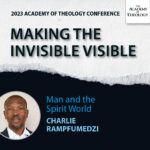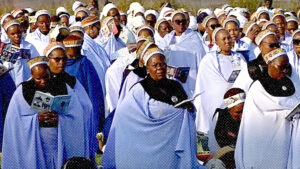Theology plays a crucial role in preaching, particularly in the context of the doctrine of salvation. This is often overlooked or soft-pedalled by preachers. But it is essential to incorporate theology into our preaching. In fact, it’s inevitable that our theology will be communicated in our preaching.
I want to exhort preachers to deliberately consider their theology as they preach.
This article argues that theology is not an optional aspect of preaching. Instead, theology is the foundation of all preaching. The preacher’s theology is communicated to the audience and helps them apply it to their lives. This is true, whether the preacher is aware of it or not. Our theology comes through in our preaching. So I want to exhort preachers to thoughtfully and deliberately consider their theology as they preach.
The Pastoral Epistles Emphasise Doctrine
Inseparable from salvation is sound doctrine.
Consider the pastoral epistles, the letters to Timothy and Titus. Paul urges his understudies to uphold sound doctrine, emphasising the importance of teaching what accords with sound doctrine and rebuking those who contradict it (1 Timothy 1:10; 4:6; 6:3; 2 Timothy 4:3; Titus 1:9; 2:1). Paul also highlights the grace of God bringing salvation, based on the message of the scriptures, through the preaching of the word. And any meaningful response to this (faith and repentance) is enabled by the Holy Spirit. But inseparable from that salvation is sound doctrine.
Therefore preachers must preach the word of truth, helping people apply it to their lives. This doesn’t exclude theology.
Peter’s Preaching Was Full of Theology
Consider Peter’s sermon in Acts 10:34-43, which led to the conversion of Cornelius. Peter incorporated various theological disciplines related to salvation in his sermon: God’s nature (Acts 10:34); Jesus as Lord (Acts 10:36, 38); the Holy Spirit and Jesus of Nazareth (Acts 10:38); the devil, or angelology (Acts 10:38); the cross (Acts 10:39); the resurrection (Acts 10:40, 41); election (Acts 10:41); and Jesus as judge of both the living and the dead (Acts 10:42).
Hebrews: A Sermon Saturated in Theology
In addition to Paul and Peter, above, there’s Hebrews. Significantly, most scholars consider the book of Hebrews to be a sermon. This might explain why it doesn’t have the typical features of a letter: author, recipient, or opening greeting. Towards the close, the author refers to the book as an “exhortation”(Hebrews 13:22; see Acts 13:16-41). All of this indicates Hebrews is more like a sermon than a letter.
Deliberate theological argumentation has an important role in our preaching.
So what? Well, Hebrews is theologically rich. Remarkably so. The author carefully considers various aspects of the Jewish faith and demonstrates the superiority of Jesus Christ. In Hebrews, therefore, we have a carefully reasoned piece of theology that was more than likely a 1st century sermon. This indicates that deliberate theological argumentation has an important role in our preaching and teaching.
Preach the Bible’s Theology, Not Your Own
In summary, theology cannot be overlooked in preaching. Theology must form the core of our preaching. In fact, it will. Whether that’s intentional or not is up to us. Preachers must start with the text of scripture, extract its theology, and then present it to the audience, helping them apply it to their lives for salvation or sanctification.











